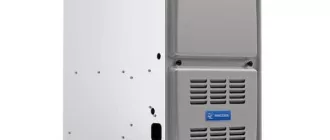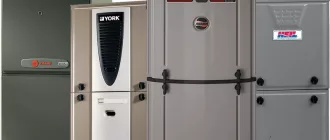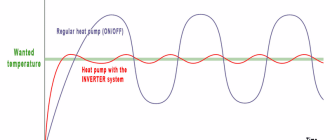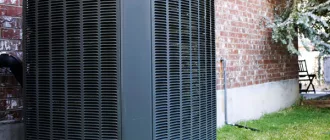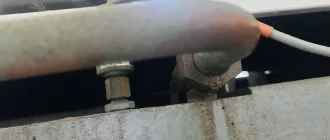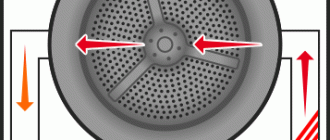
AC Air Handler 101: Functions, Benefits, and Troubleshooting Tips
When it comes to air conditioning, the AC air handler plays a crucial role in maintaining the comfort and efficiency of your cooling system. Understanding its functions, benefits, and troubleshooting tips can help you keep your AC unit running smoothly and your home cool and comfortable.
The AC air handler is responsible for circulating the conditioned air throughout your home. It houses the blower fan, which draws in air from the return ducts and pushes it through the evaporator coil, where it is cooled and dehumidified. The cooled air is then distributed through the supply ducts into the various rooms of your home.
One of the main benefits of the AC air handler is its ability to improve indoor air quality. The air passing through the air handler’s filter is cleansed of allergens, dust, and other particles, providing cleaner and healthier air for you and your family to breathe. Additionally, the air handler helps in maintaining the desired temperature and humidity levels in your home, ensuring optimal comfort.
If you encounter any issues with your AC unit, troubleshooting the air handler is a good place to start. One common problem is a clogged filter, which can restrict airflow and decrease efficiency. Regularly replacing or cleaning the filter can prevent this issue. Another common issue is a faulty blower fan, which may result in poor airflow or no airflow at all. Checking the fan motor and making sure it is functioning properly can help resolve this problem.
In conclusion, understanding the functions, benefits, and troubleshooting tips of your AC air handler is essential for maintaining a comfortable and efficient cooling system in your home. Regular maintenance and care of the air handler can help prolong the lifespan of your AC unit and ensure optimal performance. Remember to consult a professional if you encounter any major issues or if you are unsure of how to troubleshoot your AC air handler.
AC Air Handler 101: Functions, Benefits, and Troubleshooting Tips
The AC air handler plays a vital role in the overall performance and efficiency of your air conditioning system. It is responsible for circulating the conditioned air through your home, ensuring proper temperature regulation and optimal comfort. Understanding the functions, benefits, and troubleshooting tips of the air handler can help you maintain a comfortable and energy-efficient home.
The main function of the AC air handler is to distribute the conditioned air that is generated by the AC unit. It contains a blower motor, a fan, and an evaporator coil. When the AC unit is running, the air handler pulls in air from your home through return ducts and passes it over the evaporator coil. The coil cools the air by removing heat and moisture, and then the now-cooled air is pushed back into your home through supply ducts.
One of the key benefits of an efficient air handler is improved indoor air quality. The air handler helps filter out contaminants such as dust, pollen, and allergens, promoting a healthier living environment. Additionally, an efficient air handler can help reduce energy consumption and lower utility bills. By properly circulating the conditioned air, the air handler ensures that each room in your home receives adequate cooling or heating, eliminating hot or cold spots.
However, if you encounter any issues with your air handler, there are troubleshooting tips that can help you identify and resolve the problem. Common issues include strange noises, reduced airflow, or uneven cooling. In such cases, it is recommended to check the air filter and clean or replace it if dirty. A clogged air filter can restrict airflow and strain the air handler. Additionally, checking for any obstructions in the ductwork or ensuring that all vents are open and unblocked can help improve airflow.
If troubleshooting efforts do not resolve the issue, it is advisable to contact a professional HVAC technician for further inspection and repair. They have the knowledge and expertise to diagnose and fix any problems with your AC air handler, ensuring optimal performance and longevity of your air conditioning system.
In conclusion, understanding the functions, benefits, and troubleshooting tips of your AC air handler is essential for maintaining a comfortable and energy-efficient home. Regular maintenance and prompt attention to any issues can help prolong the lifespan of your air conditioning system and ensure maximum comfort for you and your family.
What is an AC Air Handler?
An AC air handler is an essential component of an air conditioning system that is responsible for distributing cold or warm air throughout a building. It plays a crucial role in the overall function and performance of the AC system.
The main function of an AC air handler is to circulate conditioned air from the cooling or heating unit, such as the evaporator coil or furnace, and distribute it through a network of ducts to various rooms or areas. It works in conjunction with other components of the AC system, such as the compressor and condenser, to provide a comfortable indoor temperature.
One of the key benefits of an AC air handler is that it allows for zoned cooling or heating. By using a system of dampers, the air handler can control the airflow to different areas or rooms, providing customized comfort levels. This can help save energy and improve overall efficiency, as it allows for targeted heating or cooling where it is needed most.
However, like any other mechanical system, AC air handlers can experience problems or malfunctions over time. Common troubleshooting tips for AC air handlers include checking for proper airflow, ensuring the air filter is clean, inspecting the ductwork for leaks or blockages, and making sure the thermostat settings are correct.
In conclusion, an AC air handler is a vital component of an air conditioning system that distributes conditioned air throughout a building. It offers benefits such as zoned cooling and heating, but it can also encounter issues that require troubleshooting. Regular maintenance and care are essential to ensure the optimal performance of the AC air handler and the overall AC system.
How Does an AC Air Handler Work?
The AC air handler is a vital component of an air conditioning system. Its main function is to circulate and distribute the conditioned air throughout the space. It plays a crucial role in maintaining a comfortable indoor climate by filtering and conditioning the air.
The air handler consists of a blower, a cooling coil, and a filter. When the AC is turned on, the blower pulls the warm air from the space into the air handler. The air passes through the filter, which removes dust, pollen, and other particles, ensuring clean and healthy air circulation.
After passing through the filter, the air then moves over the cooling coil. The coil contains refrigerant, which absorbs the heat from the air, making it cooler. The cooled air is then blown back into the space through the vents, lowering the temperature and providing a comfortable environment.
The air handler also plays a role in dehumidification. As the warm air passes over the cooling coil, it loses moisture, reducing the humidity levels in the space. This helps prevent mold and mildew growth and improves indoor air quality.
Benefits of an AC air handler include improved air quality, temperature control, and energy efficiency. By circulating and filtering the air, the handler helps remove allergens, odors, and pollutants, ensuring cleaner and healthier air. It also allows for precise temperature control, maintaining a comfortable indoor climate. Additionally, the air handler can help reduce energy consumption by efficiently distributing the conditioned air throughout the space.
However, like any other component of an AC system, the air handler may encounter issues. Common troubleshooting tips include checking the air filter for dirt and debris, ensuring proper airflow, and inspecting the blower motor for any abnormalities. Regular maintenance and cleaning of the air handler can help prevent problems and prolong its lifespan.
The Importance of Regular Maintenance
Regular maintenance of your AC air handler is essential to ensure its proper functioning and extend its lifespan. By taking the time to perform routine maintenance tasks, you can enjoy the following benefits:
1. Improved HVAC Efficiency: Regular maintenance keeps your air handler running optimally, which helps maximize the overall efficiency of your AC system. This can result in lower energy consumption and reduced utility bills.
2. Enhanced Indoor Air Quality: The air handler plays a crucial role in filtering and distributing clean air throughout your home. With regular maintenance, you can ensure that the air circulating in your living space remains clean and free from pollutants, allergens, and other harmful particles.
3. Prolonged Equipment Lifespan: Regular maintenance helps identify minor issues and address them before they escalate into major problems. This proactive approach can help extend the lifespan of your air handler, allowing you to avoid costly repairs or premature replacement.
4. Reduced AC Breakdowns: Routine maintenance includes inspecting key components, tightening connections, and lubricating moving parts. This helps prevent unexpected breakdowns and ensures that your air handler continues to provide reliable cooling performance, especially during hot summer months.
5. Cost Savings: By investing in regular maintenance, you can potentially save money in the long run. Preventive maintenance is generally less expensive than emergency repairs or replacement of damaged equipment. Additionally, an efficiently operating air handler can help reduce your energy bills.
Don’t underestimate the importance of regular maintenance for your AC air handler. If you neglect this essential task, you may encounter various troubleshooting issues and reduce the overall lifespan and performance of your AC system.
Remember to consult the manufacturer’s guidelines and schedule regular maintenance with a qualified professional to ensure your AC air handler functions optimally and provides the cooling comfort you deserve.
Benefits of Upgrading Your AC Air Handler
Upgrading your AC air handler can offer several benefits for your overall air conditioning system. Here are some of the key advantages of upgrading your AC air handler:
- Improved Air Quality: An upgraded air handler can help to improve the air quality in your home by effectively filtering out dust, allergens, and other pollutants.
- Enhanced Energy Efficiency: Newer AC air handlers are designed to operate more efficiently, reducing energy consumption and ultimately lowering your utility bills.
- Better Cooling Performance: Upgrading your AC air handler can help to optimize the cooling performance of your air conditioning system, ensuring that your home stays comfortable even during the hottest months.
- Noise Reduction: Older air handlers may produce more noise during operation. By upgrading to a newer model, you can enjoy a quieter and more peaceful indoor environment.
- Improved System Lifespan: A new AC air handler can help to extend the lifespan of your overall air conditioning system, saving you money on costly repairs or replacements in the long run.
- Increased Customization: Upgrading your air handler allows you to choose a model that is better tailored to your specific cooling needs, providing you with better control over your indoor climate.
In conclusion, upgrading your AC air handler can offer numerous benefits, including improved air quality, enhanced energy efficiency, better cooling performance, noise reduction, increased system lifespan, and increased customization. Consider upgrading your air handler to ensure optimal performance and comfort from your air conditioning system.
Choosing the Right AC Air Handler for Your Home
When it comes to your home’s AC system, the air handler is an essential component. It plays a crucial role in the functioning of your AC system and can have a significant impact on its overall performance and efficiency. Choosing the right AC air handler is important to ensure optimal comfort and energy savings.
The air handler is responsible for circulating cool air throughout your home. It works in conjunction with the condenser unit to cool the air and distribute it through the ductwork. The air handler also helps filter the air, removing dust, allergens, and pollutants, which is especially important for those with allergies or respiratory issues.
There are several factors to consider when choosing an AC air handler for your home:
| Type of system | Determine whether you have a split-system or a packaged unit, as this will affect the type and size of the air handler you need. |
| Size | Make sure the air handler is properly sized for your home. An undersized unit may not cool your home adequately, while an oversized unit can lead to inefficiencies and higher energy bills. |
| Noise level | Consider the noise level of the air handler. Look for models that offer quiet operation, especially if the unit will be installed in a bedroom or living area. |
| Energy efficiency | Check the energy efficiency rating of the air handler. Look for models that have a high SEER (Seasonal Energy Efficiency Ratio) rating to maximize energy savings. |
| Additional features | Consider any additional features offered by the air handler, such as variable speed motors or humidity control, that may enhance comfort and energy efficiency. |
Choosing the right AC air handler for your home can greatly improve the performance and efficiency of your AC system. It is recommended to consult with a professional HVAC technician to assess your specific needs and help you make the right choice.
Once you have chosen and installed the appropriate AC air handler, it is important to maintain it properly and troubleshoot any issues that may arise. Regular maintenance, such as cleaning or replacing filters, can help prolong the lifespan of the air handler and ensure its continued efficient operation.
In conclusion, the AC air handler is a critical component of your home’s cooling system. By selecting the right air handler and properly maintaining it, you can enjoy the numerous benefits of a comfortable and energy-efficient home.
The Role of Filters in Your AC Air Handler
Air filters play a crucial role in the proper functioning of your AC air handler. These filters are designed to trap dust, dirt, pollen, and other airborne particles before they can enter your home. By effectively filtering the air, they help maintain a clean and healthy indoor environment.
One of the main functions of air filters in an AC system is to protect the internal components of the air handler. When dust and debris enter the unit, they can clog the coils, fan blades, and other parts, leading to reduced efficiency and potential damage. Air filters act as a barrier, preventing these contaminants from entering and causing harm.
Another benefit of air filters is improved indoor air quality. Without filters, airborne particles can circulate freely, causing allergies and respiratory issues for occupants. By trapping and removing these particles, filters help to create a healthier breathing environment.
Regular maintenance of air filters is essential for optimal AC performance. Over time, filters can become dirty and clogged, decreasing their efficiency. It is recommended to check and clean or replace filters every 30-90 days, depending on the type and usage. This simple maintenance task can greatly improve airflow, energy efficiency, and overall air quality.
Remember, not all filters are created equal. Different types of filters offer varying levels of filtration and airflow resistance. It is important to choose filters that are compatible with your AC system and meet your specific needs. Consulting with a professional or referring to the manufacturer’s guidelines can help you select the right type and size of filter.
In conclusion, air filters have multiple functions and benefits in your AC air handler. They protect the internal components, improve indoor air quality, and contribute to overall energy efficiency. By regularly maintaining and replacing filters, you can ensure optimal performance and a healthier living environment.
Common Issues with AC Air Handlers
AC air handlers, also known as fan coils, play a crucial role in the overall functioning of an air conditioning system. However, like any other component, they can encounter problems that can affect the cooling performance and efficiency of the AC unit.
One common issue is a malfunctioning fan motor. The fan motor is responsible for circulating the conditioned air throughout the home. If the motor stops working or runs at a slower speed, it can result in reduced airflow and inadequate cooling. Regular maintenance and periodic lubrication can help prevent motor issues.
Another common problem is a clogged air filter. The air filter’s primary function is to capture dust, dirt, and other particles to improve indoor air quality. However, if the filter becomes dirty and clogged, it can hamper the airflow and put extra strain on the air handler. Regular filter replacement or cleaning is necessary to avoid this issue.
Leaky air ducts can also cause problems with AC air handlers. When there are leaks in the ductwork, cool air can escape before reaching the desired areas, resulting in reduced cooling efficiency. Sealing the ducts properly with duct tape or mastic can prevent air leaks and optimize the performance of the AC system.
Another potential issue is a refrigerant leak. The refrigerant is responsible for absorbing and releasing heat, and if there is a leak in the system, it can lead to insufficient cooling. A professional technician should be called to fix refrigerant leaks and recharge the AC system to ensure it operates at peak efficiency.
Furthermore, electrical problems like loose connections, faulty wiring, or a malfunctioning control board can also affect the functioning of the air handler. These issues can lead to intermittent cooling, irregular fan operation, or even complete system failure. Professional troubleshooting and repair are necessary to resolve electrical problems safely.
In conclusion, familiarizing yourself with the common issues that can arise with AC air handlers can help you troubleshoot problems and ensure the optimal functioning of your air conditioning system. Regular maintenance, filter replacement, and professional technical assistance can address these issues effectively and prolong the lifespan of your AC unit.
How to Troubleshoot AC Air Handler Problems
If you’re experiencing issues with your AC air handler, troubleshooting the problem can help you identify and resolve the issue efficiently. Here are some troubleshooting tips to help you get your AC air handler working properly:
1. Check for power: Make sure that the air handler is receiving power. Check the circuit breaker to ensure that it hasn’t tripped and that power is flowing to the unit. If the circuit breaker has tripped, reset it and see if that resolves the issue.
2. Inspect the air filter: A dirty or clogged air filter can restrict airflow and cause the air handler to work inefficiently. Remove the air filter and inspect it for dirt and debris. If the filter is dirty, clean or replace it as necessary.
3. Check the thermostat settings: Ensure that the thermostat is set to the desired temperature and mode. If the settings are incorrect, adjust them accordingly and see if that solves the problem.
4. Clear the condensate drain line: A clogged condensate drain line can cause water to back up and damage the air handler. Locate the condensate drain line and clear any blockages using a wet/dry vacuum or a pipe cleaner.
5. Inspect the blower motor: The blower motor is responsible for circulating air through the air handler. If the motor is not working properly, it can cause airflow issues. Check the motor for any signs of damage or wear. If necessary, contact a professional to repair or replace the motor.
6. Verify the refrigerant levels: Low refrigerant levels can cause the air handler to struggle to cool the air effectively. If you suspect that the refrigerant levels are low, contact a professional HVAC technician to inspect and recharge the system.
7. Contact a professional: If you’ve performed the above troubleshooting steps and the AC air handler is still not working, it’s best to contact a professional HVAC technician. They will have the expertise and equipment to diagnose and resolve the problem efficiently.
Troubleshooting AC air handler problems can help you identify and resolve issues before they become more serious. By following these tips, you can get your AC air handler back to working properly, ensuring the comfort and efficiency of your cooling system.
Signs Your AC Air Handler Needs Repair
If you have an AC unit in your home, it’s important to keep an eye on your air handler to ensure it’s functioning properly. The air handler is a crucial component of your AC system, responsible for circulating and distributing cooled air throughout your home.
Here are some signs that your AC air handler may need repair:
1. Lack of cool air: If you notice that your AC system is blowing warm or lukewarm air instead of cool air, it could be a sign that there is a problem with your air handler. This could be due to a malfunctioning motor or a clogged air filter.
2. Weak airflow: If you feel that the airflow coming from your vents is weak or insufficient, it could be an indication that your air handler is not functioning as it should. This could be caused by a malfunctioning fan motor or a blocked or damaged ductwork.
3. Strange noises: If you hear unusual noises coming from your air handler, such as grinding, squealing, or banging sounds, it’s a clear sign that something is wrong. These noises could be due to a worn-out motor, loose components, or a faulty fan belt.
4. Water leaks: If you notice water pooling around your air handler, it could be a sign of a refrigerant leak or a condensate drain problem. Leaking water can cause damage to your air handler and should be addressed promptly.
5. Constant cycling: If your AC system is constantly turning on and off, it could be a sign that your air handler is struggling to maintain a consistent temperature. This could be caused by a faulty thermostat, a malfunctioning blower motor, or a refrigerant issue.
If you notice any of these signs, it’s important to contact a professional HVAC technician to inspect and repair your AC air handler. Ignoring these issues could lead to further damage to your AC system and a higher energy bill. Remember, regular maintenance and timely repairs can help extend the lifespan of your HVAC system and keep it running efficiently.
AC Air Handler vs. Heat Pump: What’s the Difference?
When it comes to cooling and heating your home, it’s important to understand the difference between an AC air handler and a heat pump. While both play a crucial role in maintaining a comfortable indoor environment, they have different functions and benefits.
The AC air handler is an essential part of your air conditioning system. It is responsible for circulating the cool air produced by the AC unit throughout your home. The air handler contains key components such as the blower motor, evaporator coil, and air filter. When the AC unit turns on, the air handler pulls in warm air from inside your home, passes it through the evaporator coil, and blows out cool air into different rooms.
On the other hand, a heat pump serves a dual function. It can both cool and heat your home. In warm weather, the heat pump works similarly to an AC unit, extracting heat from the indoor air and releasing it outside, providing cool air. However, in cold weather, the heat pump reverses the process by extracting heat from the outdoor air and transferring it inside your home. This process is highly efficient and cost-effective since it moves heat rather than generating it.
Understanding these differences can help you troubleshoot issues that may arise with your cooling and heating system. For example, if your AC is blowing warm air, the issue could be with the air handler or the AC unit itself. However, with a heat pump, the problem could stem from the outdoor unit or the reversing valve, which controls the direction of the refrigerant flow.
Knowing the functions and benefits of both an AC air handler and a heat pump can help you make informed decisions when it comes to repairing, maintaining, or upgrading your HVAC system. Whether you need to replace your air handler or consider installing a heat pump for energy-efficient heating and cooling, understanding their differences will ensure you make the best choice for your home.
In summary, the AC air handler is responsible for circulating cool air in your home, while a heat pump can both cool and heat your home. By understanding how they function and the benefits they bring, you can troubleshoot issues and make informed decisions about your HVAC system.
Question-Answer:
What is an air handler and what does it do?
An air handler is a part of an air conditioning system that helps circulate the conditioned air throughout a building. It is typically located indoors and plays a crucial role in maintaining the comfort and air quality within a space.
How does an air handler work?
An air handler works by drawing in air from the return ducts, conditioning it through a filter, cooling or heating it with the help of the evaporator coil or heat exchanger, and then distributing the conditioned air through the supply ducts. It also helps regulate the humidity level in the space.
What are the benefits of an air handler for an HVAC system?
An air handler provides several benefits for an HVAC system. It helps improve indoor air quality by filtering and purifying the air. It also helps maintain a consistent temperature and humidity level in the space. Additionally, it allows for zoned cooling and heating, which can help save energy and reduce utility bills.
What are common issues that can occur with an air handler?
Some common issues that can occur with an air handler include a clogged air filter, a malfunctioning blower motor, a frozen evaporator coil, leaking ductwork, and electrical problems. It is important to have regular maintenance and inspections to prevent and address these issues.

